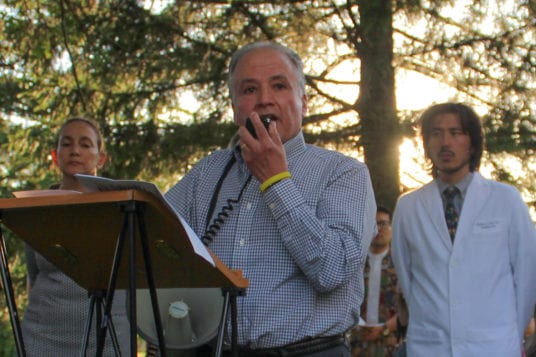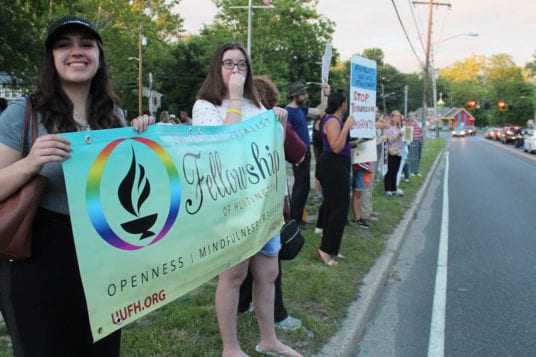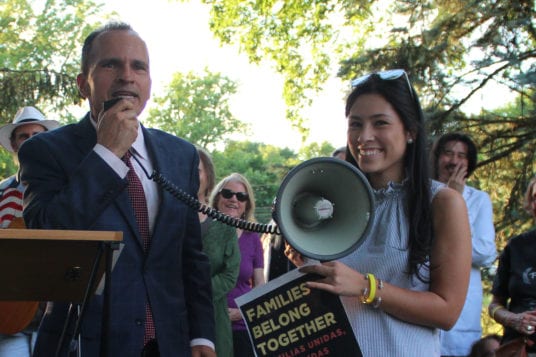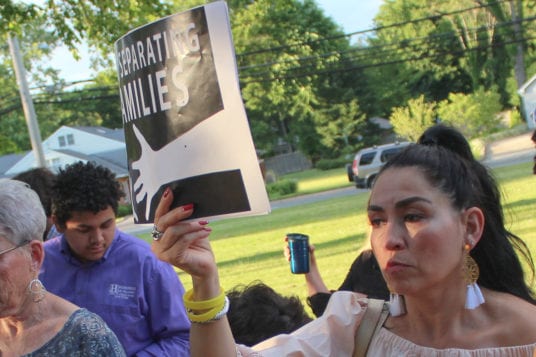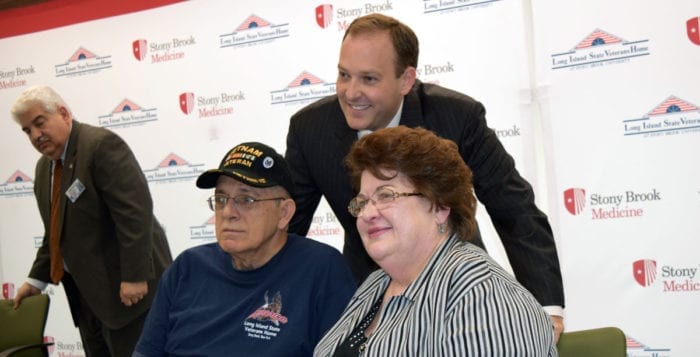In light of current national events, a gnawing question surfaces — what happened to American values?
Even the staunchest defenders of President Donald Trump (R) have to concede what’s currently going on at the borders of the United States is deeply troubling — the separation of parents from their children.
The thought of just one child being separated from his or her family, crying for even a second, should be enough to deter any American with a conscience from supporting the president’s current policy. And yes, it is he and his administration’s to own, no matter what they want us to believe.
The president has falsely claimed the immoral and inhumane policy of separating children from their parents who cross the border illegally was “a Democrat’s law.” It is not a law. Now it turns out, he is signing an executive order ending this loathsome policy.
According to PolitiFact — a fact-checking site owned by the nonprofit Poynter Institute for Media Studies — the zero-tolerance policy that the Trump administration introduced in April, and one our president now admitted he has the power to change, has led to the massive uptick in children of all ages stuck in federal facilities without their parents. Attorney General Jeff Sessions and Chief of Staff John Kelly have publicly intimated the aim of the new policy is to deter people from seeking asylum in the U.S. Even so, that hasn’t happened. Illegal immigrants are so desperate to flee their countries, they are walking into this crisis as the lesser of two terrible evils.
On June 15, federal officials announced that 1,995 children have been separated from 1,940 adults at the border between April 19 and May 31. Parents were referred for prosecution.
Facts matter regarding the details of the new policy, especially as the White House and cabinet members like Department of Homeland Security Secretary Kirstjen Nielsen cry “fake news.” It would be accurate to say the Trump administration has not explicitly crafted a policy calling for the separation of families entering the U.S. illegally. However, zero tolerance has created the problem, because illegally crossing the border was previously handled as a civil offense. This allowed families to be detained together, but now, as the felonies are turning into criminal charges, parents are being taken into police custody while children are frequently sent to a Walmart-turned-detention center in Texas, which grows more crowded by the day, and other places around the country.
This is all indisputable fact. We as Americans have a responsibility to acknowledge this, politicians and officials.
We encourage anyone as troubled by this as we are to reach out to your houses of worship to see if they’re taking steps to aide those being affected. Who are looking after the safety and welfare of these children? Donate your time or money to one of the more than 10 rapid response networks aiding Long Island immigrants, or organizations like RAICES, a Texas-based nonprofit that provides legal defense for individuals in immigration court.
This is not our America, and this is not your America. This is not anyone’s America. We cannot remain silent. When government fails, it is up to us to stand up for one of America’s intrinsic values — freedom and the entitlement to basic human rights.



